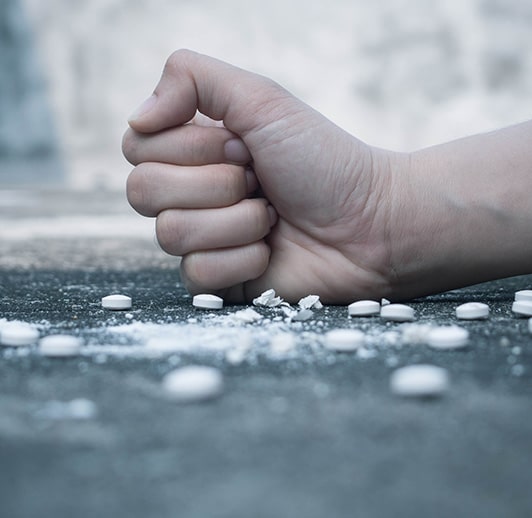Anatta was conceptualized in 2004 when Mr Mahesh Hiranandani chose to make a luxury treatment centre for those experiencing dependence on substances. Being somebody who got himself out of the snare of addiction, he decided to assemble a team. A group of experts that could provide a tailor made client-specific recovery program.
Anatta has evolved exponentially over the period of 15+ years. It has expanded its facilities to Mumbai, Pune, Delhi, Mauritius and the USA; making Single client therapy one of their specialities. Our residential recovery programmes can last from 6 to 12 weeks. Our therapeutic programmes involve various counselling techniques and meditation practices, introspective journaling and alternative therapies. The entire process is structured around the client living with a team of Medical Professionals and experiential counsellors during the treatment.
DE-STIGMATISING ADDICTION – THE ANATTA JOURNEY AND EFFORTS:
Anatta has made some blatant efforts to destigmatize the problem of addiction since 2004. It created platform which focused on awareness and solutions. We believe, any change in society begins from home – from an individual.
- Anatta has been educating the families of clients regarding addiction and their own co-dependent traits. This helps them to understand and be compassionate towards them.
- Anatta has discussed addictive traits and self -realisation techniques etc. on various international forums and workshops to create awareness.
- Anatta’s YouTube Channel called “Anatta Speaks” has experts from various specialties, explaining the various behavioural aspects of the problem. They share their experiences with right solutions and approach.
Destination Treatment is a great way to begin the process
of recovery. Find the destination that suit you best.
Effects of Drug and Alcohol Addiction and Post Treatment Transformations

Addiction increases the risk of organ damage, lifestyle disorders, systemic illnesses, cancers, structural brain damage eventually resulting in mental illness like dementia and drug-induced psychosis. The addict’s obsession with the substance affects the mood and can lead to serious relationship issues. The Addict can no longer differentiate between himself/herself and the personality that one becomes after drug abuse thus, this becomes a matter of concern for the addict and his/her loved ones.
THE TRANSFORMATION:
The objective of treatment is to understand one’s addictive patterns of behaviour and understand them by introspecting on his/her life incidents. The core issue is a difficulty in dealing with one’s emotions.
The Individual learns to detach their motions perceived/ painful life events and take responsibility for his/her actions and emotions. All these processes have one goal, not finding the need to use substances and build bridges with the family again by finding constructive modes of living and working with self-respect and dignity.
THE RIGHT ENABLING AND INFLUNCER: Drug and Alcohol Rehabilitation Program
Living with a loved one suffering from chemical dependency makes our life vulnerable too. Our mind and focus always revolves around him/her and we lose our self-identity while trying to control our loved one’s life, family and work, simultaneously, this is called Co-dependency.
A co -dependent is blindsided by the loved one’s actual pattern of addiction and fails to see the signs of the same. The co-dependents enable the dependent by: giving in to tantrums, bailing them from legal tangles.
The addict does not know how to stop and to communicate that he/she needs help. The family does not know what to say and when, to get him/her to seek help.
A co-dependent needs to adopt right modes of communication with the dependent, which includes:
- Speak in the morning when you know the person is sober.
- Share what one feels and experiences as a consequence of the other’s drinking/using without blaming and shaming the individual for it.
- Persuade him/her to meet the experiential addiction counsellor who can motivate him to come into residential rehabilitation treatment.
Thus, the Co-dependent can be the right kind of enabler and then influencer in getting the addicted individual to accept help.
Your Road To Recovery Begins Here Talk To Our Expert Counselor
The treatment to any kind of addiction begins from identification and acceptance which you need to provide to your loved ones. For further support, fill the form below and our expert counselor will contact you.
ANATTA‘S ALTERNATE LIFE THERAPIES AND FOLLOW UP : Rehabilitation for Addiction with a difference

Anatta’s residential program is a Single client, Voluntary, exclusive, luxurious, non-medical, non-regimented programme where one experiences living a fulfilling life away from substance. It consists of:
COUNSELLING
Highly trained experiential counsellors offer extensive counselling with sharing and self -disclosure as core aspects being available 24/7 for clients.
MEDITATION
Rapid thoughts and fluctuating emotions are dealt with through meditative techniques which are psychotherapeutic.
INTROSPECTIVE WRITING
Detachment develops with past perceived painful emotions and life is lived more realistically with the tools imbibed.
INTEGRATED HOLISTIC TREATMENT
Yoga techniques, hypnotic regression are facilitated to bring hormonal, Neuro-chemical and psychological equilibrium.
FOLLOW UP
On programme completion, the follow up required evolves:-
- 10-15 days after returning home, return for 4-5 days to deal with new challenges that might have cropped up at home.
- If any situation arises that is unmanageable emotionally, one needs to call their counsellors without thinking, “I will handle it”
- A follow up every month or two months for 3-5 days in the first year of recovery
- The family should continue their counselling with the family therapist even after the client returns home as they require it even more then.
Efforts are made to help the individual in recovery to attain phenomenon of “Re-joyment” without the support of substance. This Re-joyment is an essential and final component in the WHO model of recovery. The program also addresses co-dependency issues at an equal footing to dependency issues
[download-brochure]
